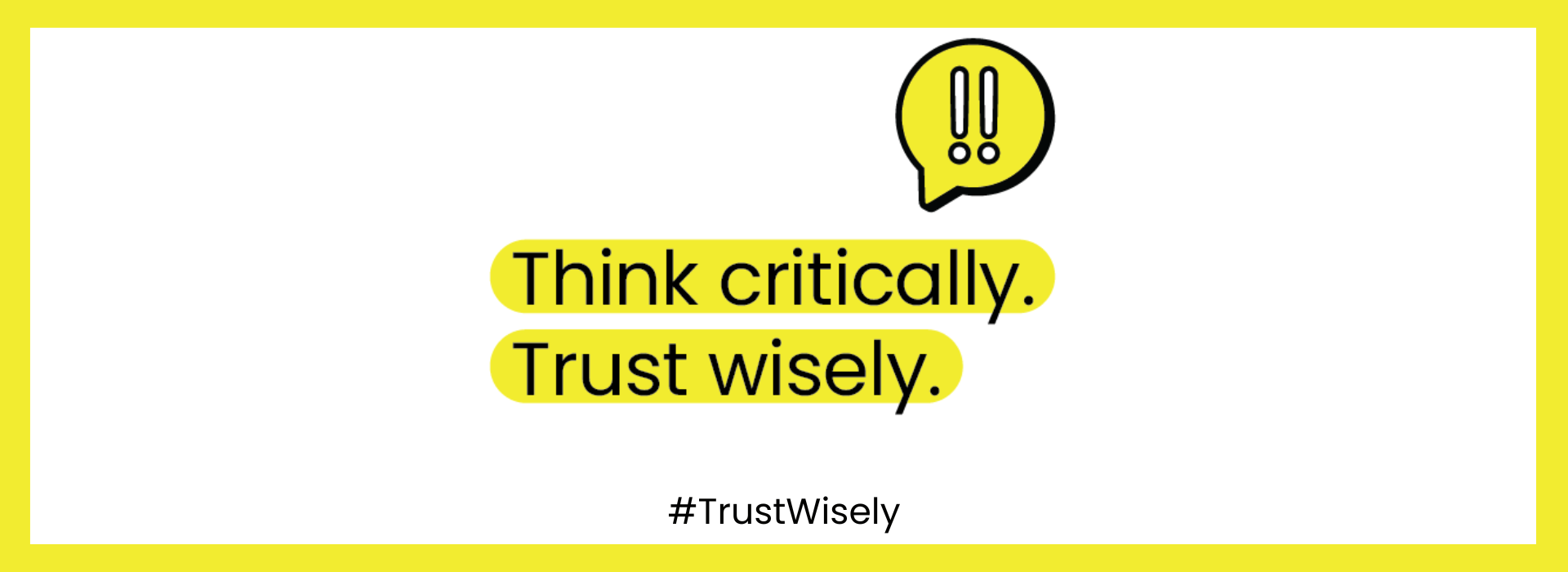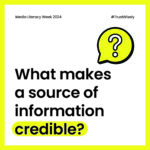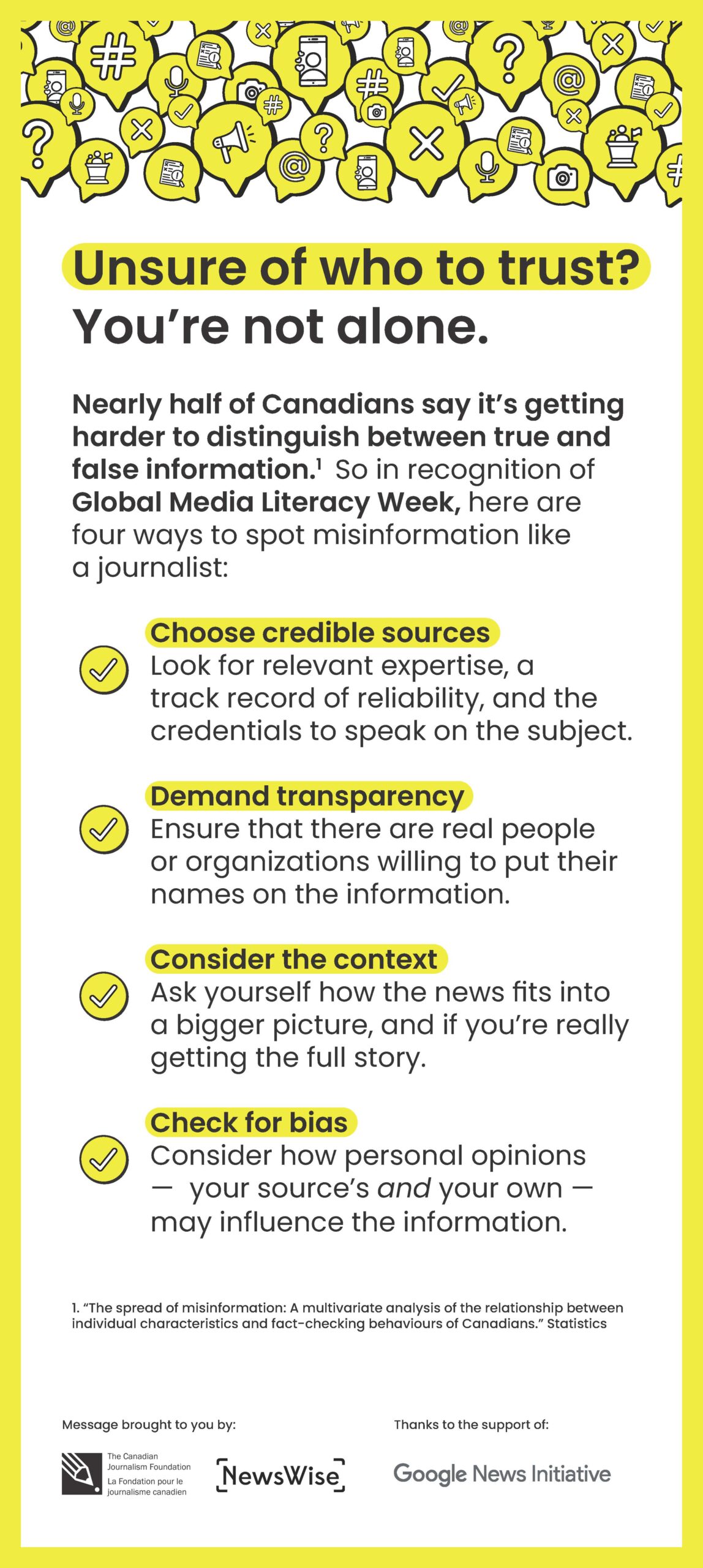At a time when digital misinformation divides democracies and threatens civil liberties worldwide, trust has become a precious commodity.
We believe that it’s more important than ever for Canadians to spend their trust wisely.
For Media Literacy Week, October 21-25, 2024, the CJF invited newsrooms across Canada to join us in reminding audiences how quality journalism works to earn their trust.
- Across Canada, news organizations shared our #TrustWisely assets and showcased their commitment to trustworthy journalism.
- Ten prominent media leaders contributed to our campaign launch video.
- President and Executive Director Natalie Turvey’s op-ed, Navigating News in the Age of Misinformation, was featured in publications nationwide.
- Our J-Talks Live Media Literacy event, Media Myths Debunked: What the Public Doesn’t Know and Needs to Know About Journalism and Why It Matters, brought together more than 300 participants to hear public editors from Canada and the U.K. discuss common misconceptions about journalism and the media.
- Across more than 40 platforms the #TrustWisely campaign reached an audience of more than 1 million.
#TrustWisely







